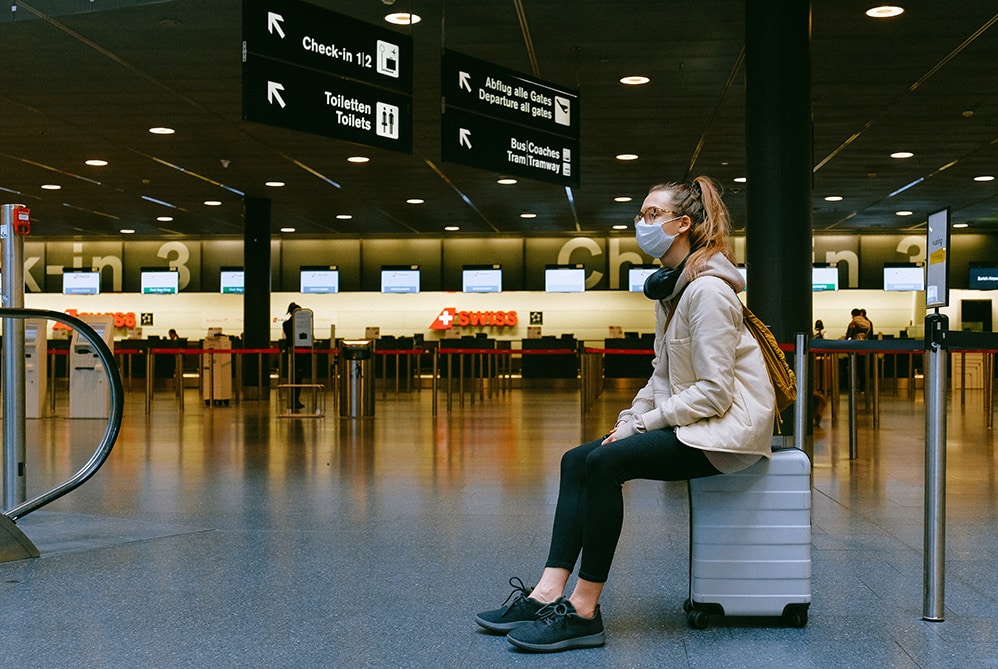Covid-19 was an existential threat to the student housing industry. Since the beginning of the pandemic, the market is facing the lowest demand in the near history. When the travel restrictions and school closures came into effect, the vast majority of students returned their homes, busy global cities suddenly became a silent ghost cities.
With the ongoing uncertainties, housing trends of students have dramatically shifted. With the basic data available at hand, it is clear that students are striving to find affordable private rooms, and avoiding shared acommodation:
- 95% decrease in demand for shared accommodation
- 22% increase in demand for private bathroom
- 68% increase in demand for budget-friendly private room options.
Some other data reveals that students who used to prefer shared rooms are not automatically willing to upgrade to the rooms with a private bathroom, but to switch to small, budget-friendly and modest private bedrooms with shared bathrooms.
Maxim, an ESL student from Russia, says “I don’t want to share my room with a stranger anymore. How can I isolate myself if my roommate is going in and out”. He adds that “my family’s business was hurt by Covid, I cannot pay more now than what I used to pay”.
Health concerns are there, but interestingly, students are more worried about their budget and pricing. We have never seen more discount questions before. A student from Mexico, Kilian, notes that “it does not matter what type of room it is or how big it is, I just want the cheapest private room. I cannot afford a room with a bathroom”.
Location is another concern for students. We see a clear trend among students towards Downtown locations. Alice, an Italian student, says “it is risky to take public transportation. I would like to walk, as long as Canadian winter does not kill me”. She adds "as long as I have my own private room, I dont mind sharing my flat with others".
We receive more questions about the cancellation policy, than Covid-19 cleaning precautions. With the ongoing uncertainties, students are not ready to pay upfront rent. We see more people visiting our website, but the booking ratio is almost one fifth of what it used to be.
Before making any payment, students would like to make sure thet have the option to cancel the booking if they face any travel restrictions or cancellation of in-person classes. With the update of our cancellation policy in favour of our students, we have seen significant relief and willingness to book.
The hybrid "vacation & study" short term education is prone to die during pandemic days. In normal times, a great number of students used to travel for a language study for a 2-8 weeks period during summer. Now, with the 2-week quarantine requirement in place, demand for short term education programmes are effectively disappearing. It is not feasible for a student to quarantine 2-weeks at the destination, and 2-weeks in their home country for a 6-week program.
It is astonishing to see how cities across the world reacted to the pandemic differently. New York City is by far the most affected location. During summer days, the demand was almost zero, when the city went through a strict lockdown. London, UK was another city where the demand was very low. Washington, DC performed relatively better, while the demand was not even close to what it used to be before the pandemic. Canadian cities, Toronto and Montreal, in example, performed better than the US and UK, again no comparison with the pre-pandemic numbers.
Schools, accommodation providers and online booking platforms are hopeful for a recovery, sooner or later. Fall 2020 was nowhere close to its pre-pandemic levels. The question is when the market will see that Fall demand again. Damien Holland, School Director of EF Toronto, believes that January 2020 will see the return of some international students. The Founder of studinthome.com is not as hopeful, and warned other stakeholders that they should be prepared for a slow market until summer 2021, perhaps Fall 2021. Alpaca, an MIT startup, says we have never seen such a dramatic change. While the median rent price dropped by almost 11% the number of vacancies almost tripled in the New York market.
A fact everyone agrees that we will see one of the highest demands in our near history once the situation normalizes. Students are bored at home, and cannot wait to unite with their classmates. At Harrington Housing, we are dedicated to flexibly adopt new policies and practices to match our upcoming students' expectations.


